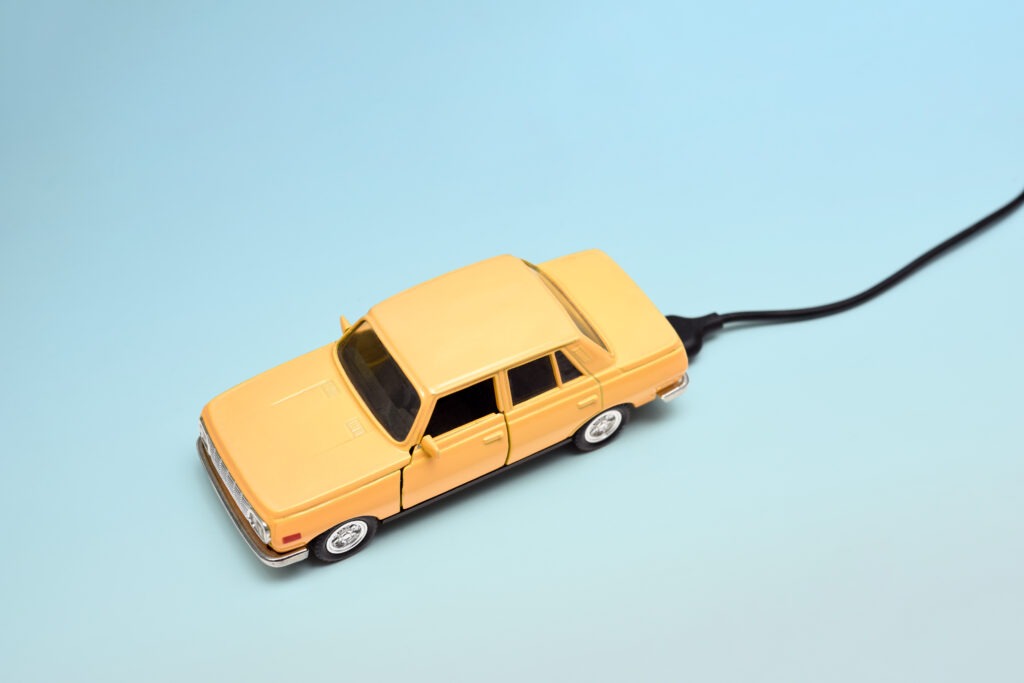09 December 2024

The UK’s new-car market suffered another drop in November, but BEVs performed well thanks to carmakers’ zero-emission vehicle (ZEV) strategies. Autovista24 special content editor, Phil Curry, reviews the tactics at play.
The latest data from the SMMT shows that 153,610 passenger cars were registered last month. This was down by 1.9% compared to the same period last year. It was the third decline in 2024, highlighting the challenges the industry has faced this year.
The UK felt the impact of the supply-chain crisis up until the middle of 2022. From there, new-car registrations in the country saw unrivalled growth ahead of the other big European markets. However, this sustained period of improvement ended in August 2024.
Another decline was then recorded in October. Last month marks the first time the UK has seen consecutive registration drops since June and July 2022.
Between January and November 2024, registrations reached 1,811,992 units. This was up by 2.8% year on year. The market is therefore likely to remain positive at the end of the year. This is unless December sees deliveries drop by more than 35.5%, with over 50,030 fewer registrations.
BEVs bounce back in November?
The UK’s new-car market was driven by BEV registrations in November, with all other powertrains declining. Deliveries of all-electric models reached 38,581 units in the month, a 58.4% rise.
This equated to a difference of over 14,200 deliveries and was its biggest increase of the year so far. This result gave the powertrain a 25.1% market share last month.
With the year drawing to a close, carmakers will be keen to ensure they sell as many ZEVs as possible. Companies will want to meet the targets set in the UK’s ZEV mandate.
This year, 22% of each carmaker’s sales must come from ZEVs, made up of BEVs and fuel-cell vehicles (FCEVs). This is set to increase to 28% in 2025, before rising in stages, reaching 80% by 2030. Financial penalties are levied on those who do not meet the objective, set at £15,000 per vehicle below the required limit.
Yet, a large number of carmakers are far below the 22% target. Sales of BEVs in 2024 have slowed considerably in the UK. Meanwhile, there have been no FCEV registrations at all so far this year. This has led to the industry calling on the UK Government to rework the mandate, relaxing potential penalties and working with the automotive sector to stimulate BEV growth.
The situation may also have led to a slightly inflated BEV figure, with carmakers employing tactics to increase their shares. This includes discounting, as well as holding back petrol and hybrid deliveries, to boost the percentage of ZEV sales.
ZEV tactics
November was only the second time the BEV market share reached above 22%. However, this was against a declining market, which skewed the figures in favour of BEVs.
The SMMT also highlights that heavy discounting took place in the month, boosting registrations. The industry body estimates that the scale of this action has cost the industry around £4 billion (€4.8 billion) this year.
The improved BEV performance may have also resulted from another ZEV tactic. In November 2023, all-electric deliveries fell 17.1%, the technology’s first decline, as carmakers held models back. By pushing deliveries to January 2024, companies could use these units to meet this year’s ZEV targets.
This means that 2024’s total is up against a lower-than-usual amount recorded last year. Comparing figures to 2022, BEV registrations increased by 31.4%. The average monthly improvement for the technology when comparing 2024 data with figures from 2022, is 43.5%.
Carmakers can also hold back deliveries of other powertrains. This tactic allows manufacturers to increase their ZEV shares by reducing overall numbers. This can be evidenced by a sudden decline in the full-hybrid (HEV) performance since September, with petrol and plug-in hybrid (PHEV) deliveries seeing steeper registration drops in both October and November.
However, since September, BEV registrations have seen some exceptional improvements. It seems that manufacturer discounting and a slowdown in deliveries of other powertrains is taking place. Carmakers are keen to reach the 22% ZEV requirement or get as close as possible to allow for credits and borrowing. This will reduce the potential for financial penalties.
A slow year
In the year-to-date, BEV deliveries were up 17.9%, with 338,314 registrations, an increase of 51,468 units. This represents an 18.7% share of registrations, well below the ZEV mandate requirements.
The SMMT believes that this share will not increase much further by the end of 2024. A continued push for sales could see BEVs claim 19% by the end of the year. This would still be three percentage points (pp) below the average market threshold. However, carmakers will be assessed on their individual ZEV sales.
BEV registrations have slowed this year. While the double-digit growth is impressive, it is below the 27.5% improvement recorded at the same time last year. It is far lower than the 38% rise seen in 2022. So, the market has been unable to sustain the volume growth seen in the last few years.
‘Manufacturers are committed to the mandate’s ambition, but market demand for EVs remains weak and below the levels expected when the regulation was drawn up by the previous government,’ the SMMT commented.
‘This year’s growth cements Britain as Europe’s second biggest new BEV market by volume and closing the gap on leader Germany. It reflects long-term manufacturer investment in new models, with more than 130 zero-emission choices now available, up more than 42% on a year ago,’ it added.
November’s hybrid evidence
HEV registrations in the UK declined in November. This was the second successive month that the technology struggled, after enjoying a strong first three quarters of the year.
Its total of 19,591 deliveries in the last month equated to a 3.6% decline compared to November 2023. It left HEVs with a market share of 12.8%, down by 0.2pp year on year. This recent trend does support the potential withholding of deliveries to improve ZEV percentages.
HEVs have built up a strong foundation across the year, however. In the first 11 months, deliveries of the powertrain were up by 9.6%. This meant a market share of 13.4%, improving 0.8pp on the same period last year.
PHEVs also saw a 1.2% decline in the month, with 15,687 units. However, due to poor results elsewhere, the technology managed to increase its market share compared to last year. It made up 10.2% of deliveries, up by 0.1pp. In the year-to-date, registrations of the powertrain climbed 19.6%, taking an 8.5% share. This is up by 1.2pp compared to the same period last year.
Petrol decline continues in November
With a push for BEVs, the internal-combustion engine (ICE) sector struggled. Petrol registrations, including mild-hybrid models, plummeted 17.7%, with 70,317 units. This was the steepest drop of the year so far, and comes after October’s 14.2% decline, indicating that some deliveries might have been held back.
The fuel type still led the market with a 45.8% share of figures. However, this was down from the 54.6% seen a year ago.
Petrol has had a turbulent year. Following growth in January, February and March, the combustion engine has been on a downward spiral. However, its strong first-quarter performance means it was only down 3.2% across the first 11 months of 2024. This resulted in a market share of 53%. This is a drop from the 56.2% hold seen during the same period of 2023.
Diesel struggled once again in the UK market. Its 10.1% decline meant that just 9,434 units were registered in the month, taking 6.1% of the market. Between January and November, deliveries are down 12.6%, with 116,044 units. In this period, the powertrain captured just 6.4% of the overall market.
The combined ICE effort in November was down 16.9% year on year. In the first 11 months, the sector declined by 4.3%, with petrol’s performance preventing this figure from being worse.





